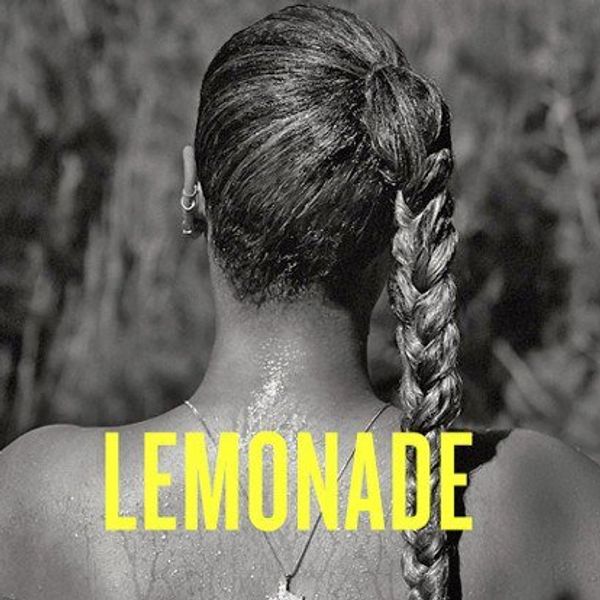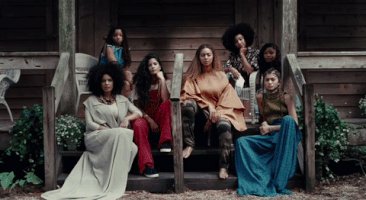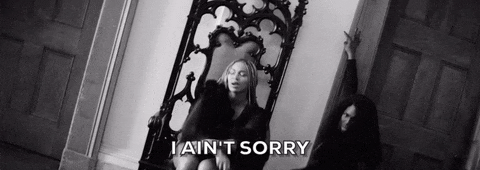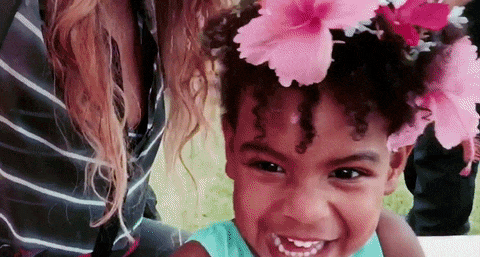Like many college students, I have recently returned home from school to live in my parent’s house for the summer. As I was spending time with my mom, she turns to me and asks, in all seriousness, “Are you really that hurt that I took your sister to the Destiny’s Child concert but didn’t take you?” My reply was, “Yes, although I was only eight, that was my first real heartbreak.” If you need to know one thing about me, know that I have been a Beyoncé fan since day one. Anyway, our conversation led to a wonderful discussion on Bey’s latest project "Lemonade."
I’ve been putting off writing a reaction article because for me, Beyoncé is a subject where I rarely care to hear anyone else’s opinion, nor do I feel the need to argue my personal opinion. I used to tell myself that I will publicly write about anything but politics and Beyoncé. I’ll reference her, but until now I haven’t wanted to dedicate a whole article to her. However, I feel like I need to break this rule after hearing other people’s take away from "Lemonade."
Yes, "Lemonade" insinuated that Jay-Z cheated on Beyoncé. (I honestly think this is true and I have evidence dating back to 2013 backing up my specific theory, but now is not the time or place for that.) But what people are missing is that "Lemonade" is about so much more than once specific indiscretion. It bothers me that there is such a huge focus on this salacious piece of gossip because it feeds into society forcing an “angry black female” narrative. "Lemonade" is not just the result of another scorned black woman; it is Beyoncé telling the story of being a black woman in America.
Here are the five biggest things that stood out to me while watching "Lemonade:"
Beyoncé is human.
As a culture we have a habit of treating celebrities as superhuman versions of what we aspire to be. Beyoncé is a classic example of this; we expect perfection out of the woman who is arguably deemed the Queen of popular music. In "Lemonade," Beyoncé shows us that she has real human emotions and deals with real human issues. Yes, dealing with infidelity is one of those issues. But she also talks about dealing with systematic racism and how her relationship with her father has affected her life. The most powerful moment is during the scene for "Don’t Hurt Yourself," where the screen flashes a message saying, “God is God and I am not,” reminding us that Queen Bey is also a human being.
“The most disrespected person in America is the black woman.”
The most powerful moment for me was also during "Don’t Hurt Yourself." Beyoncé includes a clip from Malcolm X’s 1962 speech that he delivered in Los Angeles. In this speech he says, “The most disrespected person in America is the black woman. The most unprotected person in America is the black woman. The most neglected person in America is the black woman.” As a, well, black woman, this moment deeply resonated with me. Malcolm, and Bey, re bringing attention to the fact that black women are often neglected in so many ways for so many reasons. We deal with systematic racism on top of the systematic patriarchy. We sit on the sidelines while our natural features are sexualized, desired and appropriated. We watch the Kardashians be praised for having bodies our people have had since the beginning of time. We deal with the angry black female narrative every time we dare to express emotion. We stare at a glass ceiling while attempting to rise above the oppression of our race and sex. Beyoncé may be Beyoncé but she is still black and she is still a woman.
Many issues in the black community are cyclical, and are passed down through generations.
There is a line in the poem that Bey recites between songs that goes, “Am I talking about your father or your husband?” This was definitely an OMG moment for me; I think my jaw actually dropped. So many problems in the black community are just a cycle and I see it every day within my family and my friend’s families. We learn so much from the generation before us that we often repeat the same mistakes. Some mistakes are an effect of the influence of the oppressive system, some are just issues we, as a community, need to abolish. I see so many black women who have children too young, who seek men just like their abusive fathers and who follow in the dark footsteps of black women before them. It’s all a cycle that not even Beyoncé is immune to. But, becoming aware of the cycle is the first step to abolishing it. "Lemonade" was about the cycles of grief, forgiveness and redemption that ALL human beings, not just black females, experience, showing us all it is possible to overcome.
Beyoncé is really aware of the past, present and future of black history.
I love, love, love, love how Beyoncé incorporates so much of black culture in "Lemonade." The very first outdoors scene is actually filmed at Fort Macomb, which is a pre-Civil war fort in Louisiana. Many scenes were shot on actual plantations, alluding to the history of black people. She always knows where she comes from. That just speaks volumes about how aware Beyoncé was of every element in "Lemonade." A Somali-British poet named Warsan Shire wrote the poem she recites. She includes Yoruba body art from a Nigerian-born artist. (Also, can we discuss how sick the fashion was? Go ahead Roberto Cavalli with the yellow dress!) There were so many Afro-Diasporic inspirations from elements of Yoruba spirituality and other elements of African culture. There are cameos from Amandla Stenberg, Quvenzhane Wallis, Winnie Harlow, Michaela De Prince, Zendaya, Ibeyi, and Chloe X Halle, and, of course, SERENA MOTHERF-ING WILLIAMS. All these ladies are examples of the future of black excellence. Finally, she includes a tribute to the mothers of Michael Brown, Eric Garner, and Trayvon Martin. If you didn’t notice during her Super Bowl performance, Beyoncé is black and she loves it and she’s aware of her presence as a black person in America. Don’t get it twisted.
Blue Ivy is seriously the cutest.
Finally, can we discuss how freaking adorable Blue is? Come on, it’s unreal.

























